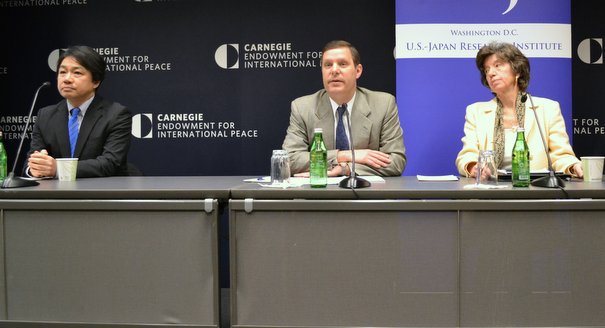Registration
You will receive an email confirming your registration.
East Asia’s growing economic interdependence, spurred in part by China and Japan’s economic diplomacy, feeds great-power competition. Ironically, it could delay future efforts toward further regional economic integration.
Takashi Terada discussed China and Japan’s competitive approaches to engaging Southeast Asian nations and wider regionalism in Asia, looking at security, trade, finance, and development. He also considered the implications of regional interdependence for the United States and the U.S.-Japan alliance. Ellen L.Frost offered comments and Carnegie’s James L. Schoff moderated.
This event was cosponsored by the U.S.-Japan Research Institute
Takashi Terada
Takashi Terada is a professor of international relations at Doshisha University in Kyoto and a leading specialist on the political economy of East Asia.
Ellen L. Frost
Ellen L. Frost is a senior adviser at the East-West Center in Washington. A former counselor to the U.S. Trade Representative, she is the author of Asia’s New Regionalism.
James L. Schoff
James L. Schoff is a senior associate in Carnegie’s Asia Program. His research focuses on U.S.-Japanese relations and regional engagement, Japanese politics and security, and the private sector’s role in Japanese policymaking.
